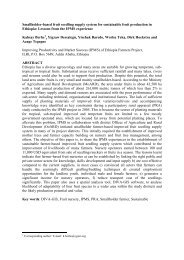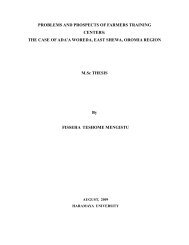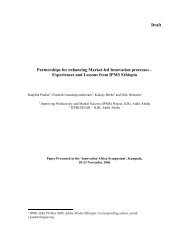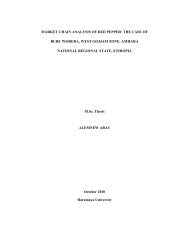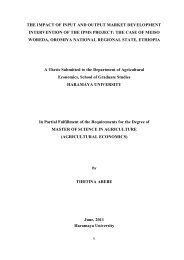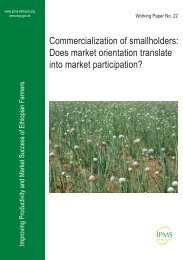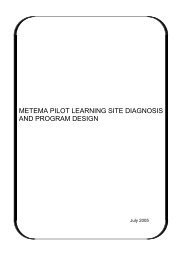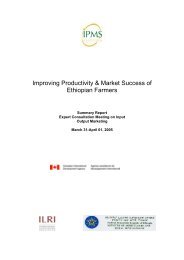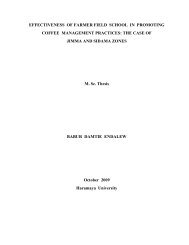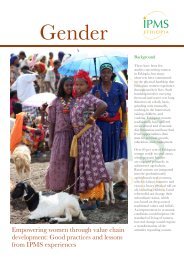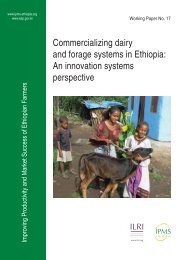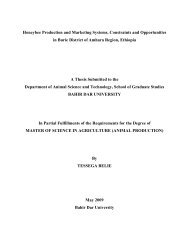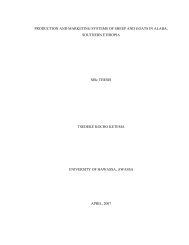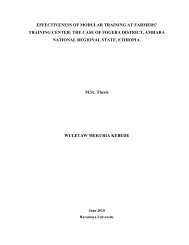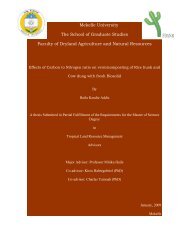EVALUATION OF ELITE HOT PEPPER VARIETIES - IPMS ...
EVALUATION OF ELITE HOT PEPPER VARIETIES - IPMS ...
EVALUATION OF ELITE HOT PEPPER VARIETIES - IPMS ...
Create successful ePaper yourself
Turn your PDF publications into a flip-book with our unique Google optimized e-Paper software.
In spite of its importance, the hot pepper production system for green and dry pod has stayed<br />
as low input and low output with a national average yield of 7.6 t/ha for green pod whereas it<br />
was 1.6 t/ha for the dry pod respectively (CSA, 2006). The decline of hot pepper production is<br />
also attributed to poor varieties, poor cultural practices, the prevalence of fungal (blights) and<br />
bacterial as well as viral diseases (Fekadu and Dandena, 2006).<br />
Even though hot pepper is a high value commodity, which has the potential for improving the<br />
income and the livelihood of thousands of smallholder farmers in Ethiopia and diversifying<br />
and increasing Ethiopia’s agricultural export exchange earnings, the crop is confronted with<br />
various production and marketing related problems.<br />
Now a days, it is widely recognized that quality product and access to market is a key element<br />
in providing a route out of poverty for small scale producers in developing countries including<br />
Ethiopia. In Jimma area, hot pepper is a major spice and vegetable crop produced by the<br />
majority of farmers in more than nine potential woredas. There is therefore a strong need to<br />
help small producers to achieve sustainable production and fair access to pepper markets in<br />
order to increase their income and secure their livelihood by providing adaptable and high<br />
yielding varieties.<br />
The present situation indicates that in Jimma area there are limited Capsicum species and<br />
varieties including both improved and the local ones. As a result, varietal information for the<br />
improvement of the crop for high fruit yield and quality in the existing agro-ecology is<br />
insufficient. There has also been no research on evaluation of hot pepper which enables the<br />
growers to select the best performing varieties in the study area. Evaluation of selected<br />
varieties was therefore one of the considerations to ease the existing problems of obtaining the<br />
desired varieties for which the output of this study was likely to assist and sensitize hot pepper<br />
growers and processors. Better adaptable and well performing variety (varieties) with<br />
improved cultural practices could be a possibility to boost quality and marketable production<br />
of the crop in the study area.<br />
3



